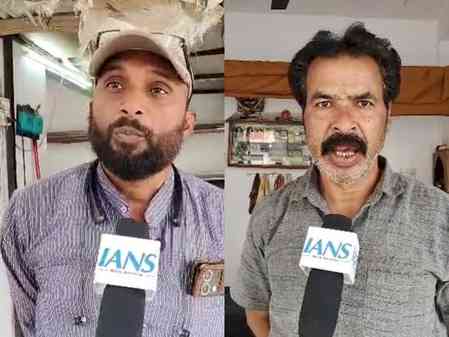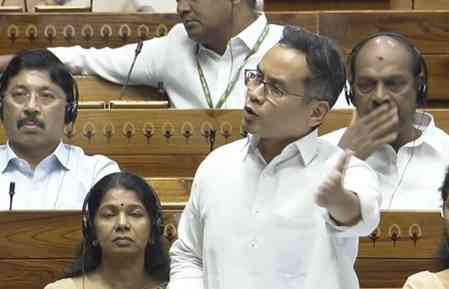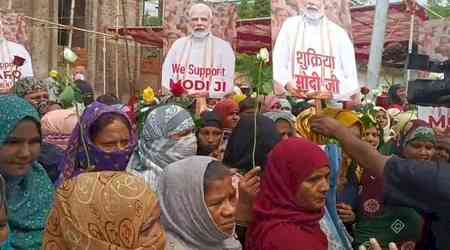A woman in Western Rajasthan walks 2 lakh kilometers in her lifetime to fetch water for her household: Shekhawat.
Says in the next 3 years, each of the Indian Districts will have water testing facilities

Hyderabad: Forced to walk miles, India's water crisis hits rural women the hardest. On an average a woman in Western Rajasthan, the place I come from, walks two lakh kilometers in her lifetime fetching water for the family", said Union Minister Gajendra Singh Shekhawat while addressing a virtual gathering of FLO (FICCI Ladies Organization) members from across India on Monday.
"Unfortunately, the burden of providing water for the family and the fields is taking a heavy toll on woman's physical and mental health. Yet she has no say in water management or distribution", he said.
He participated in Jalasya Rakshanam, a round table discussion on India’s Water Policy and understanding it with FLO’s 17 Chapter Chairpersons from across India.
Prime Minister Shri Modi announced from Red Fort on August 15, that the government would spend Rs 3.5 lakh crore on Jal Jeevan Mission. It is a very ambitious mission that can't be successful without people’s participation. Gajendra Singh Shekhawat urged people to join the mission.
He appealed to all stakeholders to come forward to achieve the mission of access to piped potable water to every rural household by the year 2024 as envisaged.
Recalling Modiji’s clarion call, Shekhawat said ’Jal Shakti’ must become Jan Andolan’.
Water is the most useful resource. We can’t waste it. The per capita water availability per annum has now come down from 5500 cubic meters to 1500 and even less. It is declining gradually. We have become a water stressed nation, said the Union Minister.
Speaking further, he urged FLO to contribute in whichever way they could towards Rashtriya Jal Jeevan Kosh (RJJK), which has been set up by the Union Government to mobilize contribution/ donation from individuals/ institutions/ corporates/ foreign donors/ philanthropists, etc. for Jal Jeevan Mission to achieve the objective of providing Functional Household Tap Connection (FHTC) to every rural household of the country by the year 2024
Conserve water, harvest it, use it rationally and recycle water should be the message to be spread across the country. Towards this direction Minister urged FLO chapters to adopt villages to spread awareness about this noble mission. This could be a game changer. It will help make that village a model village for others to emulate he said.
We consume just 5% of water for domestic use and 6% for industrial use. But, large chunk of our water goes towards agriculture. FLO can work on developing a sense of ownership to make people use the resource very judiciously, Shri Shekhawat added.
Answering to a question on whether the Ministry has any plans to have Water Health Card on the lines of Soil Health Card, he said that is a sad part. We have facilities to test blood easily but not the water. The ministry is working towards setting up one lab in each district to test water in next 3 years. The water quality tests will be done on 12 parameters such as Hardness, pH, Copper, Iron, Phosphate, Chlorine, Ammonia, Chromium and others
Speaking on the occasion Jahnabi Phookan, President of FLO Women’s Wing of FICCI said water has greater impact in our Environment, Economy and Society. The scarcity has negative impact.
Welcoming the gathering of FLO Chairpersons from across India, Governing Body Members, Past Chairpersons, FLO members, Ms Usharani Manne, FLO Hyderabad Chairperson recalled a concerning statistic which she came across recently. A survey conducted across some 6000 households that regularly fetch drinking water revealed that 13% of them sustain injuries in the process, the majority being women. And 25% of Indian homes still don’t have piped drinking water. Which means one in every four women spends four-hours-a-day just on fetching water. So, imagine the exposure to physical distress. The dire prediction is also that 30 Indian cities would face a ‘grave water risk’ by 2050 due to a dramatic increase in their population
The round table conference ended with each FLO Chapter Chairperson asking questions.


 cityairnews
cityairnews 








